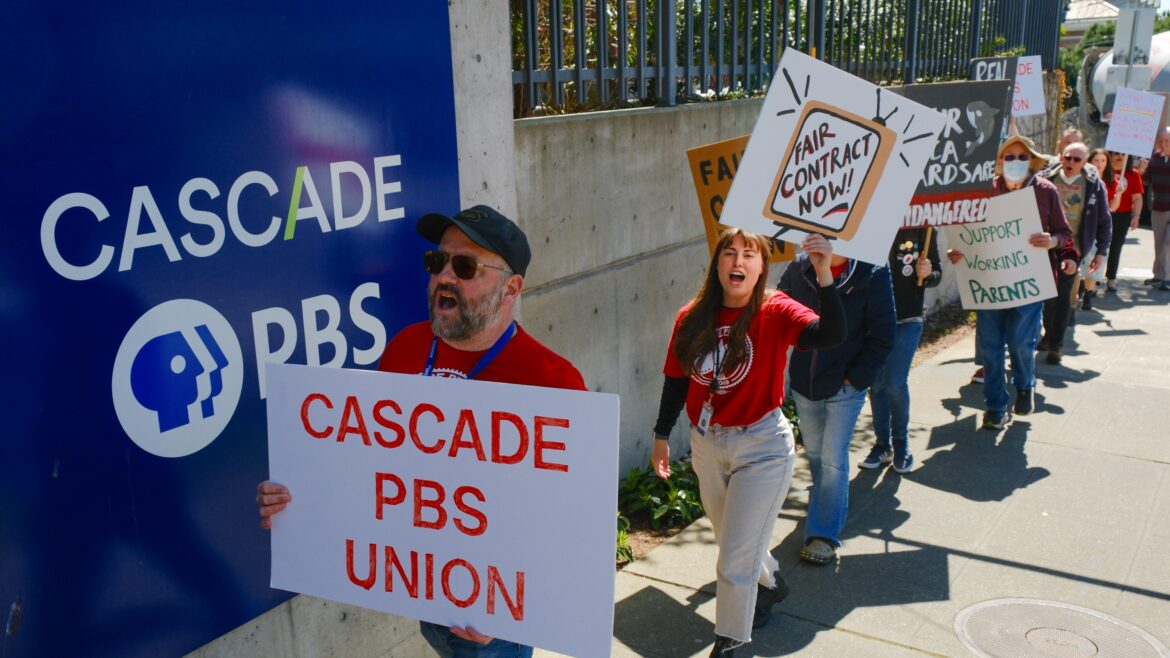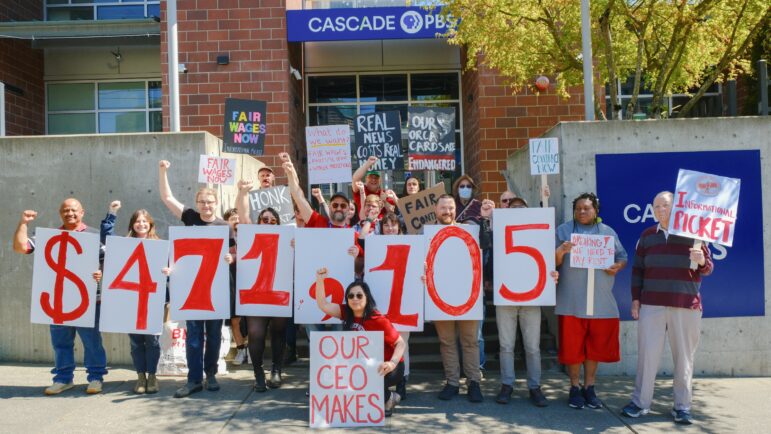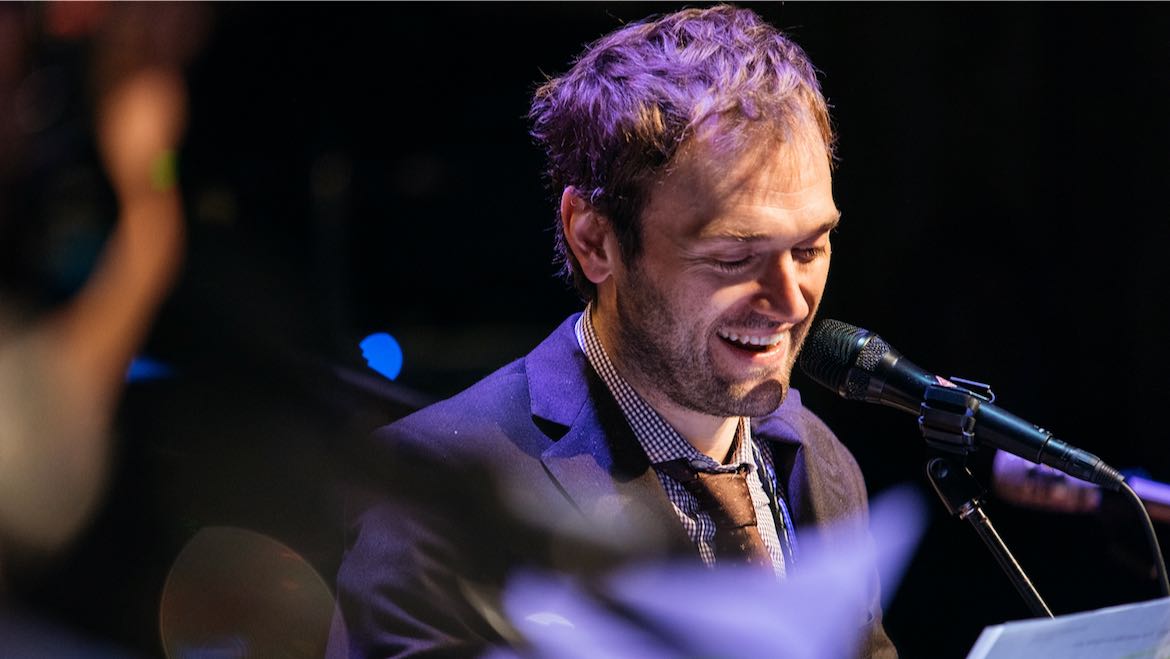Cascade PBS Union highlights salary disparities in campaign for higher wages

Courtesy of Cascade PBS Union
Cascade PBS Union members and their supporters march outside the organization's headquarters Thursday.
The union representing journalists at Cascade PBS is ramping up its organizing activities in an effort to draw attention to a stalemate in contract negotiations that began in July 2024.
The bargaining unit, which represents 23 employees, is represented by the Pacific Northwest Newspaper Guild and seeks a Seattle-scale livable wage for its members. Its first contract with management, approved in 2021, expired last September. In February, the union criticized management for an “unfair contract proposal” and authorized a strike pledge.
“The union is interested in finding a compromise with the company and coming to a fair deal that works for everybody, and the company really didn’t seem to have the same attitude for mediation,” Josh Cohen, a city reporter and member of the bargaining committee, said of an April 9 mediation session. Management returned to the table with a month-old wage proposal that was not suitable to the union’s requests, he said. The union countered by offering “a bottom-line number that we felt was fair, and they just didn’t come anywhere close to it.” The next session is Wednesday.
Reporters, editors, producers and videographers in the union haven’t had raises since October 2023, according to a news release. Union members are negotiating for higher salaries to offset the city’s high cost of living, Cohen said.
Union members are staging informational pickets outside station headquarters and collecting signatures from the public for a petition supporting their demands. The campaign criticizes the compensation of CEO Rob Dunlop, who the union says earns nearly seven times the salary of the average unit member. The union also points out that his bonuses from 2023, on their own, would’ve made Dunlop one of the highest-paid employees in Cascade’s newsroom.
According to the station’s fiscal year 2023 990 form, the most recent available, Dunlop’s reportable compensation of $471,105 included $74,000 in bonuses. The union used Dunlop’s compensation to point to wage disparities during negotiations for its first contract.
“Our board of directors sets his wages, and if they want to set it that high, that’s their prerogative,” Cohen said. “But a nonprofit public media entity that can afford to pay such high executive wages also needs to pay livable wages for all of its workers.”

In a statement, Cascade PBS spokesperson Don Wilcox said management is negotiating in good faith: “Throughout the bargaining process, we have presented carefully considered proposals reflecting both current market conditions and the financial realities facing our industry. We have engaged transparently and have continuously sought common ground through good-faith dialogue. We are committed and open to further constructive discussions with the bargaining unit. Our priority continues to be an agreement that supports our valued employees, aligns with our shared organizational values, and ensures the enduring success of our mission.”
Petitioning for public support
At the most recent picket Thursday, approximately half of the unionized employees demonstrated alongside 15 members of the community, who collectively held a sign highlighting Dunlop’s reportable compensation from FY23. The union began its informational picketing in March.
In addition, union representatives canvassed for petition signatures outside a Feb. 26 theater screening of the local docuseries Origins. On March 27, the union sent emails to donors who had contributed to Cascade PBS News, sharing a link to the petition and asking for their support. The petition, posted on the Action Network supporting progressive causes, now has nearly 700 signatures.
The tension over contract negotiations has bled into internal communications as well. On March 30, the guild filed an unfair labor practice complaint to the National Labor Relations Board alleging that management attempted to prevent the union from distributing information about its contract in a nonwork space, an activity that is protected under the National Labor Relations Act.
The complaint stems from an exchange on a non-work Slack channel after nonunionized employees asked members of the bargaining unit about the status of contract negotiations, Cohen said. Cascade PBS administrators deleted the Slack posts “despite the fact that it is very much a nonwork space where people post about the restaurants they went to or workout classes. It’s very much a modern version of the watercooler.”
Cohen said the union hasn’t heard from the NLRB about the complaint. Wilcox, Cascade PBS’ spokesperson, declined to comment on the allegations “in deference to NLRB rules.”








